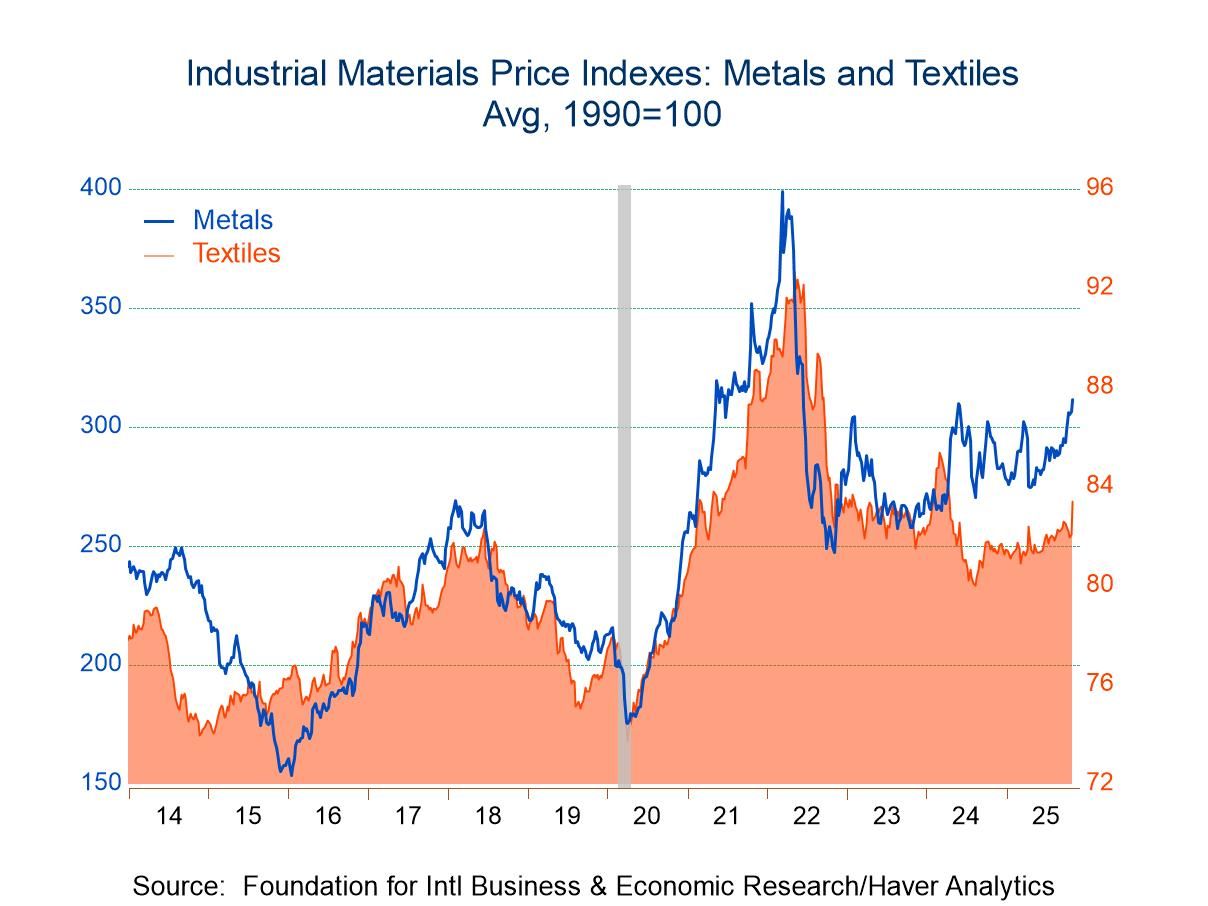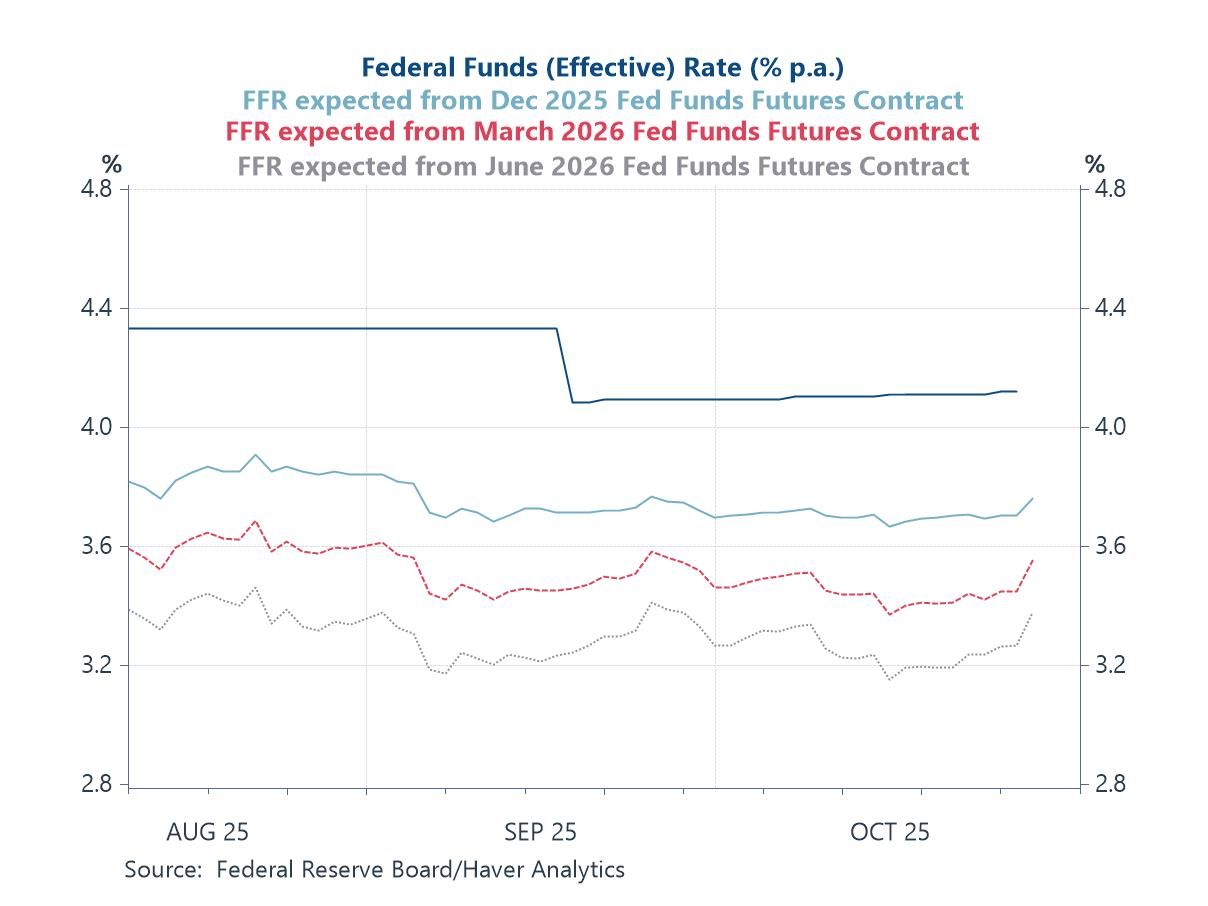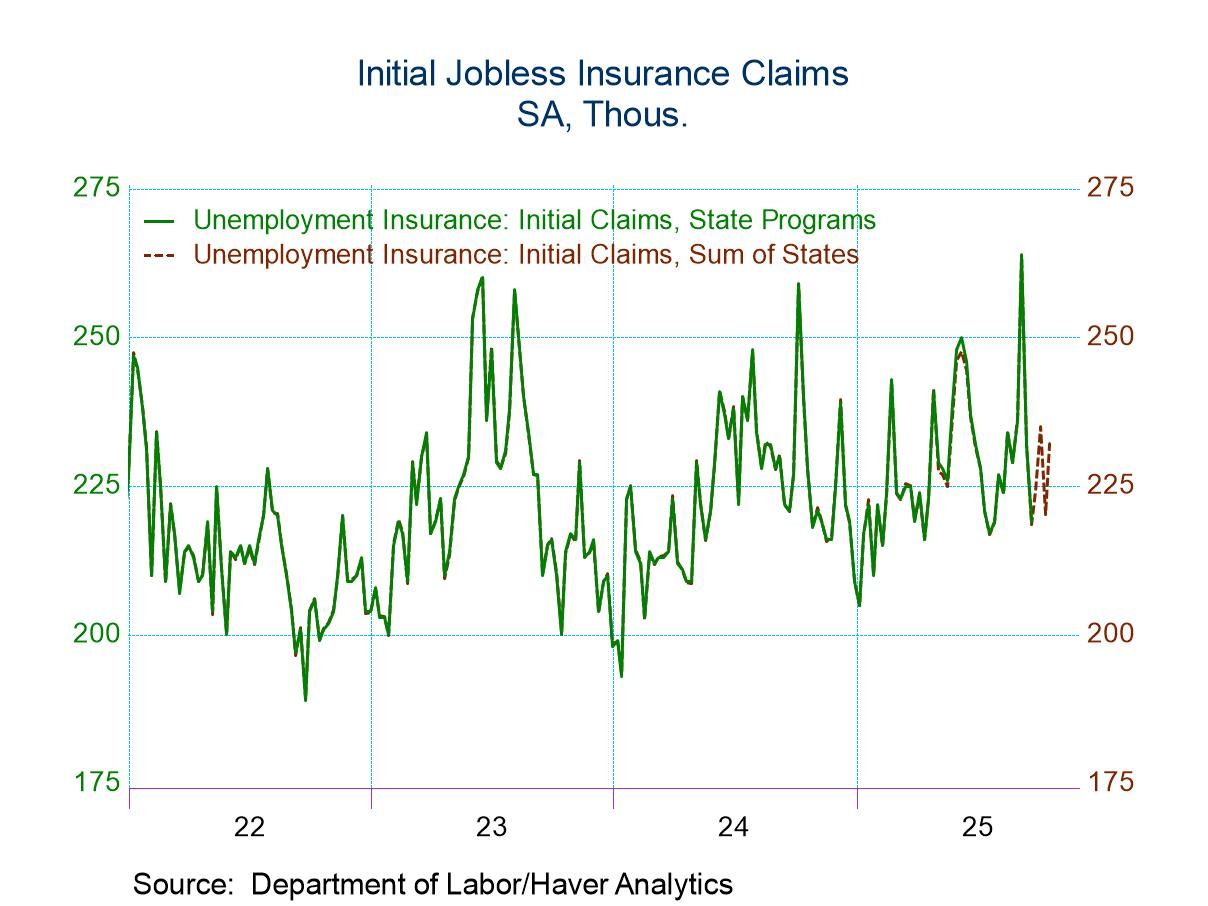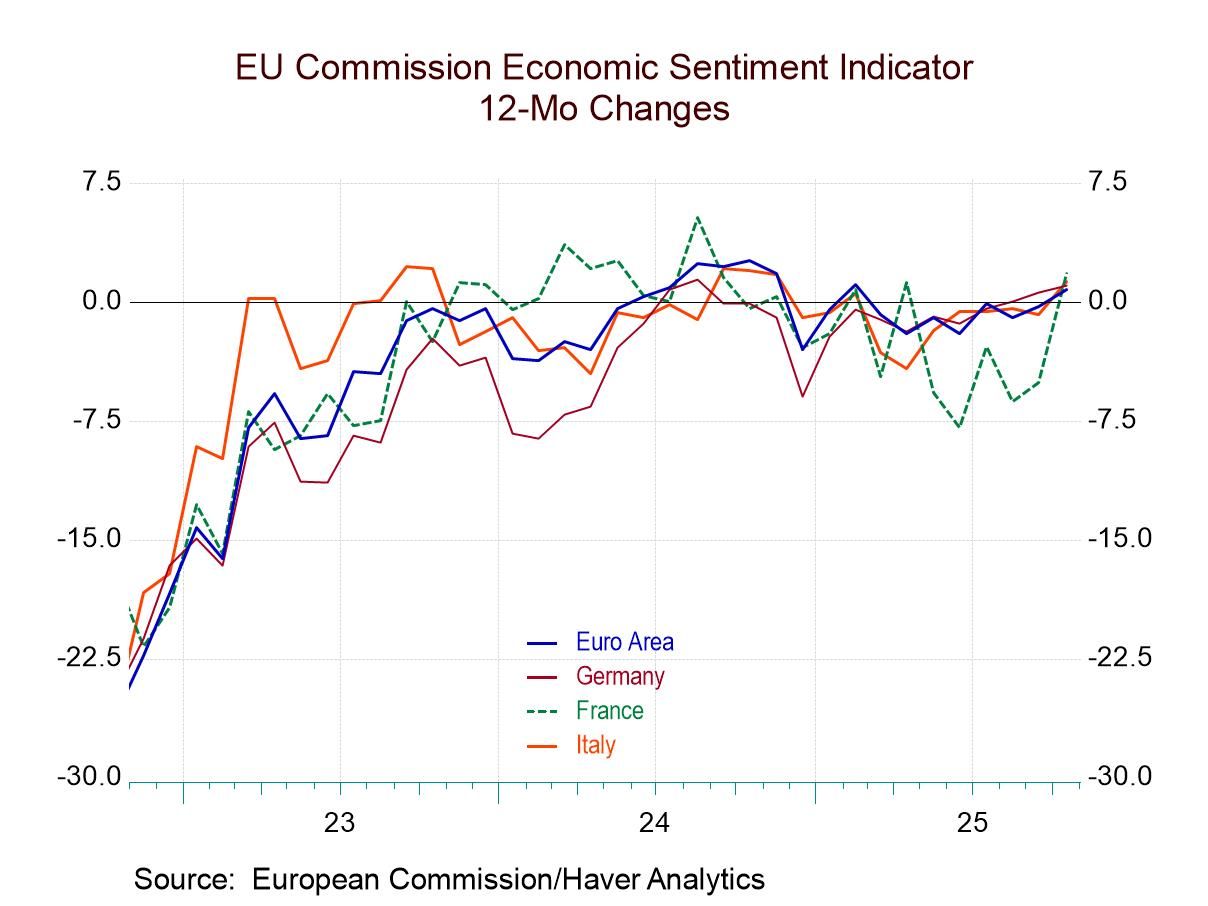 Global| May 20 2008
Global| May 20 2008U.S. PPI Gain Eased Last Month, Core Prices Firmed
by:Tom Moeller
|in:Economy in Brief
Summary
The increase in U.S. finished producer prices eased last month to 0.2% after the unrevised 1.1% spike during March. The latest gain fell short of Consensus expectations for a 0.4% rise and it was the lightest month to month increase [...]
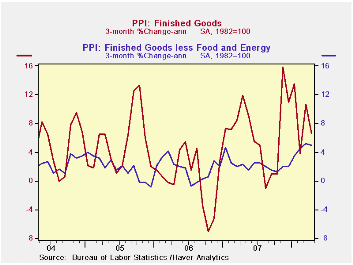
The increase in U.S. finished producer prices eased last month to 0.2% after the unrevised 1.1% spike during March. The latest gain fell short of Consensus expectations for a 0.4% rise and it was the lightest month to month increase this year.
The price gain's easing owed to a 0.2% (+17.1% y/y) decline in finished energy prices which was led by a 4.6% (+23.0% y/y) decline in gasoline prices. Elsewhere, energy prices were quite strong. Natural gas prices jumped 5.4% (9.1% y/y) and home heating oil prices increased 2.2% (48.6% y/y) after a 13.1% spike during March. Residential electric power prices also were strong and rose 1.2% (5.0% y/y).
Why Do Gasoline Prices React to Things That Have Not Happened? from the Federal Reserve Bank of St. Louis is available here.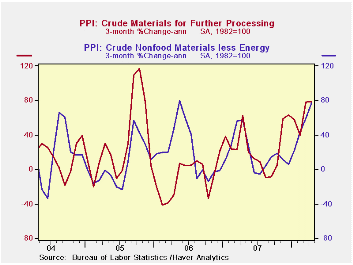
Past strength in finished consumer food prices took a breather and they were unchanged (5.1% y/y) after a 1.2% spike during March. The easing was led by a 12.3% (+39.7% y/y) decline in egg prices. Beef & veal prices also continued their recent weakness and fell 1.7% (-4.6% y/y) while fresh vegetable prices fell 4.1% (-16.2% y/y). Coffee prices fell 3.5% (+10.3% y/y). These declines were offset by higher prices for fish, turkeys and chicken.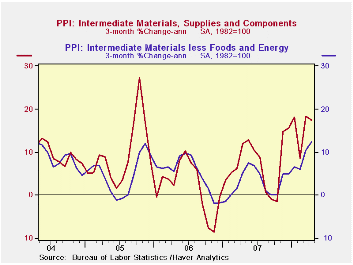
Less food & energy the increase in finished goods prices accelerated to 0.4% and that was faster than expectations for a 0.3% rise. Prices of core finished consumer goods rose 0.4% (3.6% y/y) due to more strength in nondurable prices which rose 0.3% (4.5% y/y). Durable consumer goods prices also were quite firm and rose 0.5% (2.3% y/y) due to a 0.9% (2.7% y/y) spike in household furniture prices while appliance prices increased 0.4% (0.9% y/y). Capital equipment prices also have firmed and rose 0.3% while the year to year gain rose to 2.3% from 1.4% as of last December.
Intermediate goods prices rose 0.9% after the 2.3% March surge. Excluding food & energy these prices spiked 1.2% due to 1.2% (8.7% y/y) jump in materials prices for manufacturing.
The crude materials PPI surged 3.2% further after the 8.0% March jump. Crude food prices took a breather after recent strength and fell 0.9% (+15.6% y/y). Energy materials prices jumped another 4.1% (52.0% y/y). The core crude materials PPI more than doubled its March increase and jumped 7.9% as prices for iron & steel scrap ballooned 32.2% (57.3% y/y).This morning's speech by Fed Vice Chairman Donald L. Kohn, The Economic Outlook, is available here.
| Producer Price Index (%) | April | March | Y/Y | 2007 | 2006 | 2005 |
|---|---|---|---|---|---|---|
| Finished Goods | 0.2 | 1.1 | 6.4 | 3.9 | 3.0 | 4.9 |
| Core | 0.4 | 0.2 | 3.0 | 1.9 | 1.5 | 2.4 |
| Intermediate Goods | 0.9 | 2.3 | 10.4 | 4.1 | 6.4 | 8.0 |
| Core | 1.2 | 1.1 | 5.8 | 2.8 | 6.0 | 5.5 |
| Crude Goods | 3.2 | 8.0 | 34.1 | 12.1 | 1.4 | 14.6 |
| Core | 7.9 | 3.5 | 24.5 | 15.7 | 20.8 | 4.9 |
Tom Moeller
AuthorMore in Author Profile »Prior to joining Haver Analytics in 2000, Mr. Moeller worked as the Economist at Chancellor Capital Management from 1985 to 1999. There, he developed comprehensive economic forecasts and interpreted economic data for equity and fixed income portfolio managers. Also at Chancellor, Mr. Moeller worked as an equity analyst and was responsible for researching and rating companies in the economically sensitive automobile and housing industries for investment in Chancellor’s equity portfolio. Prior to joining Chancellor, Mr. Moeller was an Economist at Citibank from 1979 to 1984. He also analyzed pricing behavior in the metals industry for the Council on Wage and Price Stability in Washington, D.C. In 1999, Mr. Moeller received the award for most accurate forecast from the Forecasters' Club of New York. From 1990 to 1992 he was President of the New York Association for Business Economists. Mr. Moeller earned an M.B.A. in Finance from Fordham University, where he graduated in 1987. He holds a Bachelor of Arts in Economics from George Washington University.



